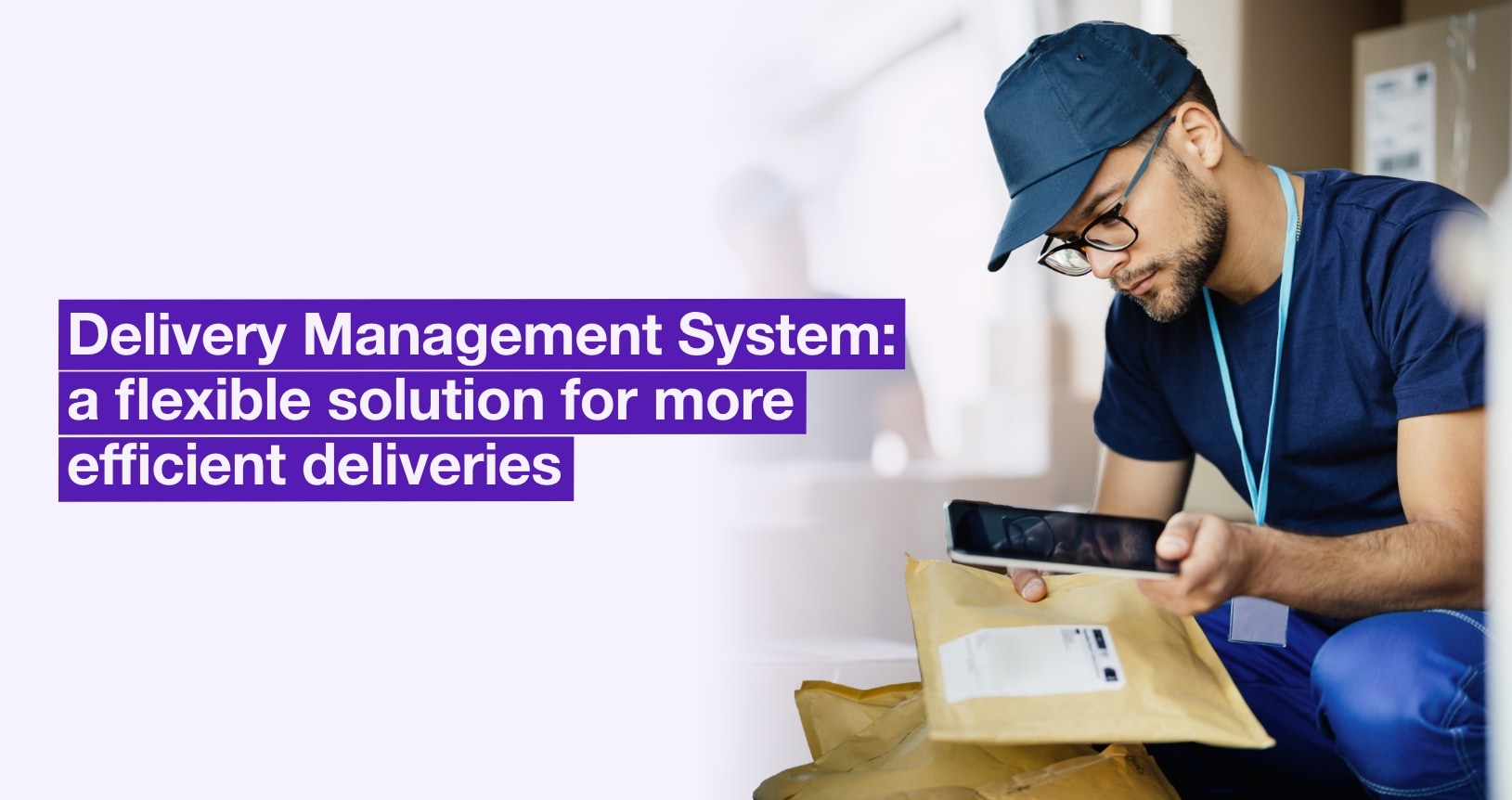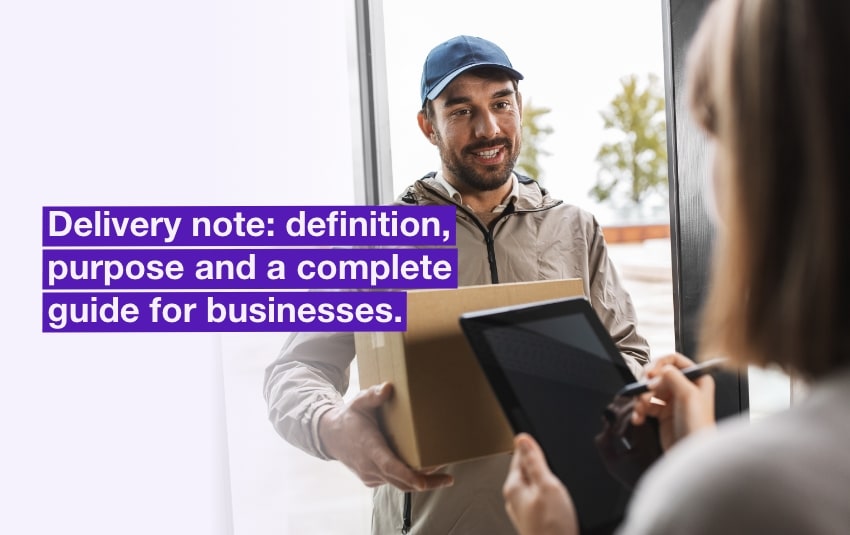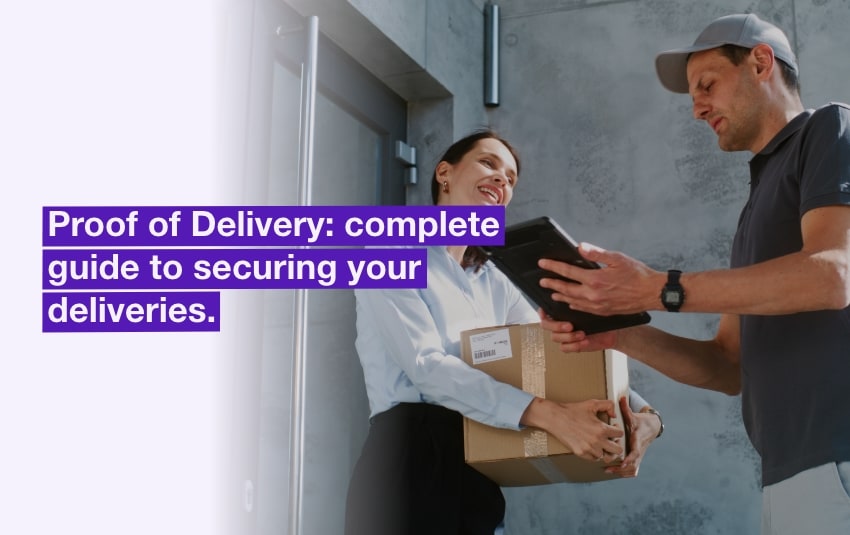Delivery Management System: a flexible and user-friendly solution for more efficient deliveries
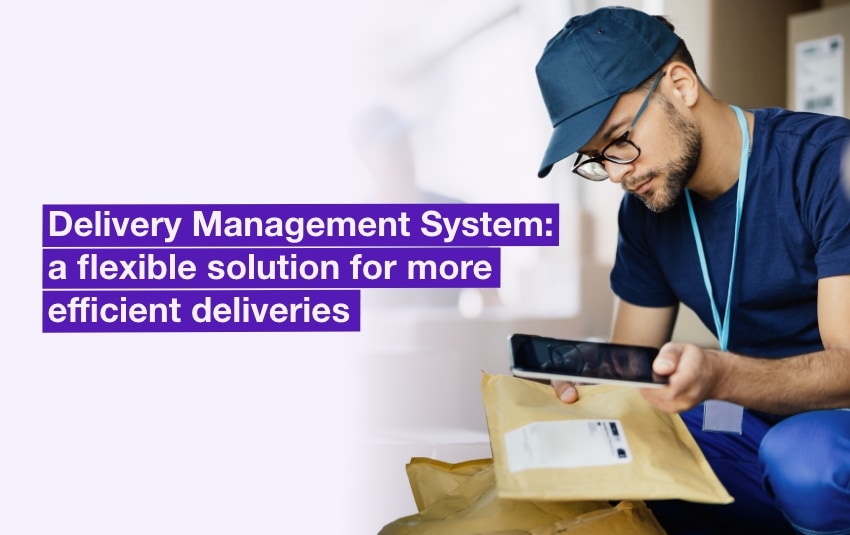
While e-commerce continues to record very high levels of activity, some traditional players in the retail and service sectors are making the most of their opportunities with increasingly efficient delivery solutions.
Click and collect, the boom in drop-off deliveries or, conversely, in-store delivery: the boundaries between e-commerce and physical shops are becoming blurred, and omnichannel delivery is becoming the trend.
And yet, from one end of the supply chain to the other, all professionals are faced with the same issue: how to offer fast, high-performance deliveries without losing (all) their margins?
To solve this seemingly impossible equation, effective and affordable IT tools have been developed: Delivery Management Systems.
Table of contents
- What is a Delivery Management System (DMS)?
- Who are the users of a Delivery Management System?
- Ready-to-use tools for optimum delivery management
The Delivery Management System provides a practical response to the current logistics challenges. The tool simplifies delivery management, ensuring speed and performance. For transport companies, this technology is the key to more flexible, cost-effective logistics.
What is a Delivery Management System (DMS)?
A Delivery Management System is an IT solution designed to smartly plan and optimise delivery tasks, from integrating orders to managing customer satisfaction.
The DMS therefore belongs to the large family of logistics management software used by supply chain professionals to optimise their performance and results.
The stated benefits of these software solutions
The main advantages of Delivery Management Systems include:
- Significant productivity gains in the last and most expensive kilometre. With a tool like AntsRoute, for example, you can reduce the distances travelled while increasing the number of operations per driver.
- Improved profitability, by maximising the load of trucks or favouring vehicles with the lowest cost per kilometre.
- A better customer experience with automated notifications in real time and driver tracking links, which also limit the volume of incoming calls.
- A reduction in the environmental footprint, by smartly optimising routes or selecting low-emission vehicles first.
The essential functions of a DMS
To help you achieve your stated objectives, most delivery management tools include the following features:
- The integration of deliveries to be completed, either by entering them directly or by importing them from another IT solution (spreadsheet such as Excel, CMS, ERP, e-commerce software, etc.).
- A route planning system, or even multi-criteria route optimisation, as with AntsRoute.
- Real-time GPS tracking of drivers or vehicles.
- Proof of delivery: captured electronic signature, photos taken in the mobile app, etc.
- Notifications by email or SMS, along with automated editing of delivery reports to automatically communicate essential information to your customers.
- A dashboard for monitoring KPIs, i.e. key performance indicators relevant to your business: fuel consumption, rate of cancelled or late deliveries, cost per kilometre, driver productivity, etc.
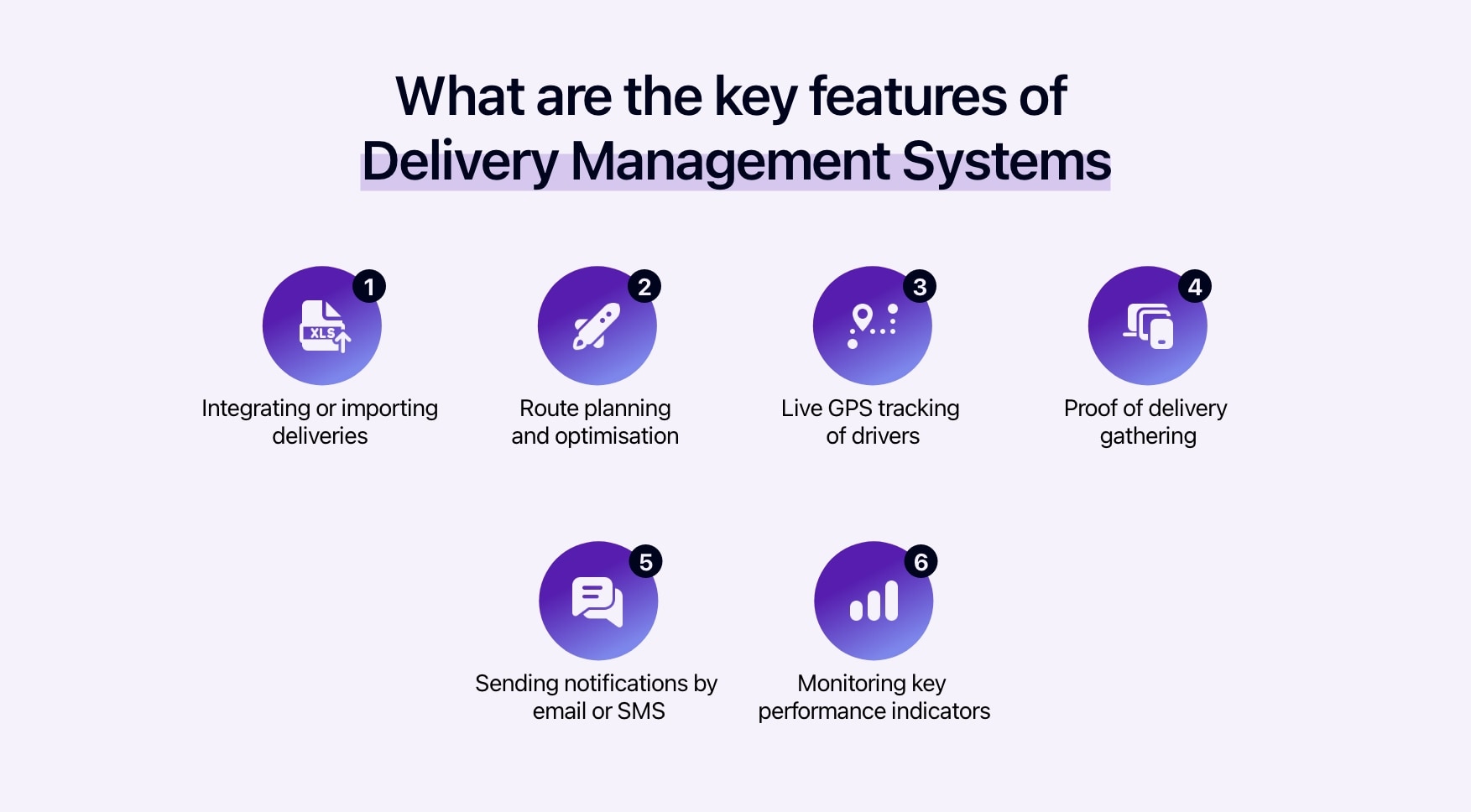
The key functionalities of Delivery Management Systems
Real flexibility of use
Most of these tools are now marketed as SaaS (Software as a Service). In other words, you can access them from any computer, tablet or smartphone connected to the internet.
This distribution method allows you to benefit from a real-time driver tracking application, without having to worry about installing or updating specific software.
The selling of DMS in SaaS mode also gives you real pricing flexibility, since the subscription price generally depends on the number of users.
With most software publishers, a simple e-mail is all it takes to change your contract in the event of a sudden increase or reduction in activity.
Who are the users of a Delivery Management System?
This type of software solution is aimed at all companies that have an interest in streamlining and automating delivery operations.
Hauliers, courier services and, more generally, companies in the logistics industry are, of course, the main users of these tools. But publishers of last-mile management software also have customers in these industries:
- Owners of e-commerce sites.
- Businesses and craftsmen for whom delivery is an essential part of their service: technical, bulky, complex-to-install products, etc.
- Restaurants and meal delivery services.
- Retailers who make their own local or regional deliveries, etc.

A Delivery Management System guarantees a positive delivery experience.
Ready-to-use tools for optimum delivery management
While DMSs are, on the whole, flexible, high-performance tools, it’s worth taking the time to compare them carefully to choose the transport software best suited to your business and your sector of activity.
Specific features which are very useful!
In addition to the functions common to all or almost all DMSs, there are real differences from one software package to another, particularly between tools designed for shippers and those aimed more at service providers and carriers.
If you are a shipper, for example, a platform like Shiptify can help you compare rates and deadlines between carriers. Alpega, meanwhile, adapts to a wide variety of transport modes, such as air, rail freight, container transport by sea, etc.
Conversely, if you deliver parcels or fresh produce in large cities on your own account, certain additional functions such as the integration of low-emission zones or differentiated management of eco-friendly vehicles are essential!
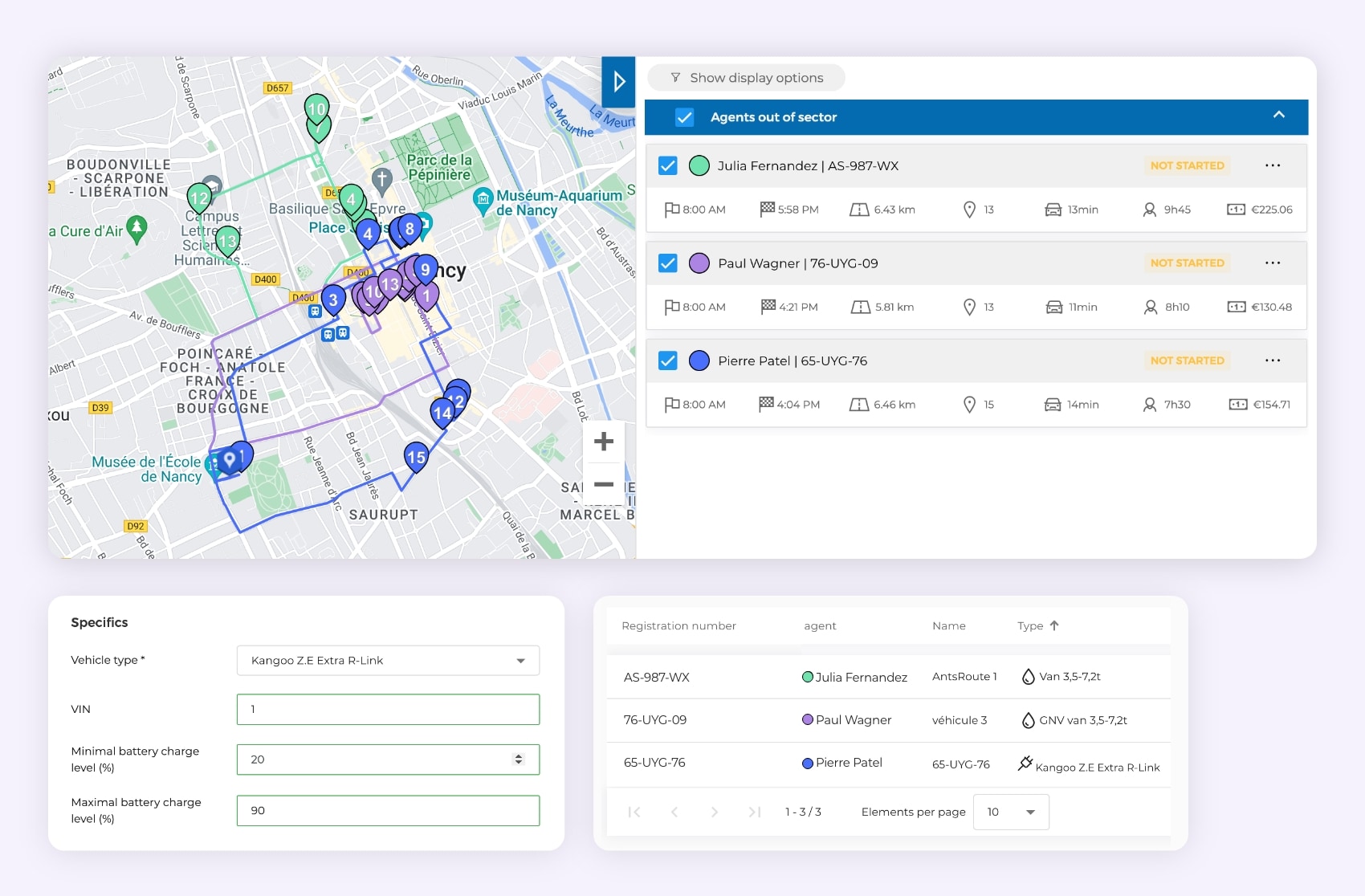
The optimisation of delivery routes with the management of environmentally-friendly vehicles on AntsRoute.
The priority: unified management of deliveries
Some DMSs are designed as all-in-one platforms, while others are able to interface with your favourite software.
What really counts, beyond the number of software packages used, is the amount of processing required by your team to handle an order from start to finish. So, if you want to improve efficiency, it’s better to avoid too many manual exports…
The best solution is to set up an automated exchange of information between the main tools used by your team, using tried and tested systems such as:
- Integration tailored to your needs.
- EDI – Electronic Data Interchange – connection, a business-to-business communication protocol.
- An API.
- A no-code connector such as Zapier, etc.
The number of possible connections is virtually unlimited. To make sure that the software you are considering connects easily to the tools you already use, you can visit the publisher’s website, or even better, ask their customer service department.

The DMS automates information exchanges.
AntsRoute, a Delivery Management System that’s easy to connect to your favourite tools
To improve your online shop’s logistics processes, our route optimisation software can, for example, exchange your data with the most popular e-commerce applications such as:
- WooCommerce
- PrestaShop
- Odoo
- Shopify via Zapiet
- eBay via Zapier, etc.
Do you work with retail companies and managing calls for tender is part of your day-to-day business? With our software, you can also benefit from integration with the Woop last mile platform.
Thanks to the AntsRoute x Woop connector, responses to bids are transmitted to AntsRoute in less than 5 seconds, while Woop automatically collects proofs of passage and delivery data gathered in our application.
Would you like to test a highly effective solution to improve your performance in the last mile? Sign up for a free 7-day trial of AntsRoute, with no commitment and no credit card number required.
Free 7-day trial | No credit card required
Contenu
- What is a Delivery Management System (DMS)?
- The stated benefits of these software solutions
- The essential functions of a DMS
- Real flexibility of use
- Who are the users of a Delivery Management System?
- Ready-to-use tools for optimum delivery management
- Specific features which are very useful!
- The priority: unified management of deliveries
- AntsRoute, a Delivery Management System that’s easy to connect to your favourite tools


